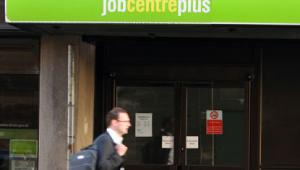Setting out possible reforms to the government’s flagship Work Programme, think-tank IPPR North called for the replacement Work and Health Programme, due to be rolled out next year, to include more local provision.
The new scheme is set to be run jointly with some major cities such as Manchester and Sheffield.
However, IPPR North said more widespread devolution could enable joint investment and local innovation, which would mean better success rates in getting people into work.
To do this, the Welfare Earnback report called for a funding switch from Annually Managed Expenditure spending (which covers areas of demand-led spending such as benefits) to departmental expenditure limits, which covers spending on back-to-work schemes.
Using predicted future AME spending to boost upfront DEL in an “invest to save” programme could boost spending on employment support and tackle current gaps in provision, the report concluded.
Savings would then be made through both lower benefit spending and higher taxation, the report concluded.
Such a AME-DEL switch is generally not allowed under Treasury guidance. However, it was proposed for the original Work Programme, the report highlighted. Expanding this approach to new local welfare earnback, companies could give combined authority mayors or local authorities the funding and incentives to devise their own local schemes.
Under the proposal, standalone employment support companies would be formed, with ownership including the DWP, the Treasury, local authorities and the health sector.
These organisations would invest in a joint venture, which would be managed as a public sector company in a city region.
Savings unlocked by the scheme would be shared among the shareholders.
The financial commitment of each agency would be determined by a cost benefit analysis, with each determining how much of a saving they would forecast to calculate their initial investment.
Overall, around £9,000 per claimant or more could be unlocked by this new approach, IPPR North research fellow and report co-author Luke Raikes said. This could then be used for new forms of intervention, such as paid job placements to build up jobseekers’ CVs.
“Today’s set-up for helping people into work is bad for jobseekers, bad for taxpayers, and bad for the public sector. It lacks the investment and innovation that’s required, and this failure often ends up costing taxpayers more,” Raikes stated.
“Devolution is a unique opportunity to bring the public sector together, to invest in the support and capture the savings that result. What counts is what works, and Mayor- or council-led companies should be free to invest in whatever support people need if it’s proven to save money.”




















